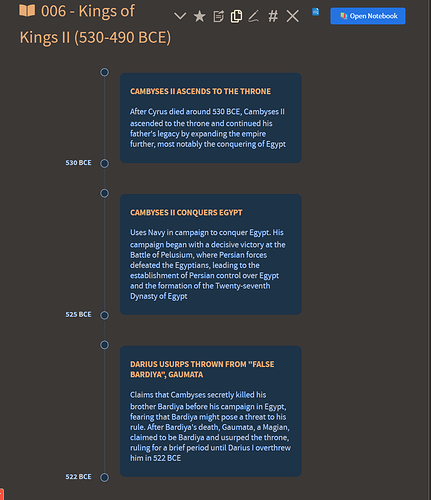Hmm. Maybe. What model are you using?
It’s not my intention at all to disregard other people’s experiences – but I have found that, when using a sufficiently advanced model such as Claude 3.5 Sonnet, most of the times I get sucked into extended whirlpools such as you are describing are actually rooted in my inability to conceptualize or articulate the actual question that I am trying to solve – and that’s something that no amount of training will be able to resolve.
These aren’t tools for replacing thinking: It’s my experience that oftentimes, even if I get stuck in a long conversation “unnecessarily,” I actually learn something about some assumptions I have made or unconscious wording that may be inappropriately framing the problem.
So, while I would love to find that a model trained on an extensive TW data actually results in a far superior experience, I have serious doubts and want to challenge people to think more broadly about this:
-
Models which have the ability to search the web can now have access to all the documentation – point a model to the TW website, enable deep search.
-
As you point out, a model that is able to interact with an environment is going to be far better at gathering data about and responding to what’s happening than the average person who just trying things and communicating back to to the agent, acting as an intermediary.
-
On the other hand, humans as an intermediary can, in many situations, be a vast improvement, avoiding many logical pitfalls that transformers fall into
I wonder, is the goal really that we have tools that give perfect solutions to every problem on the first use? And is that really realistic?
So far in human history, there have never been any tools that have worked like that – all tools require skill and practice, and complex problems always require strategic application of those skills and practice. Maybe AI is going to be the first tool that exceeds this “limitation,” but I believe that may be an unrealistic expectation for a glorified hammer.
 However, this usecase is exactly what I’ve had in mind, so I’ve given the model reference material on Tiddlywiki, and it has access to all the tiddler-titles, which it can reference if the title seems relevant to a search. It then caches some of this information for chain-of-thought reference, so it doesn’t have to go through the same search and lookup process every time.
However, this usecase is exactly what I’ve had in mind, so I’ve given the model reference material on Tiddlywiki, and it has access to all the tiddler-titles, which it can reference if the title seems relevant to a search. It then caches some of this information for chain-of-thought reference, so it doesn’t have to go through the same search and lookup process every time.